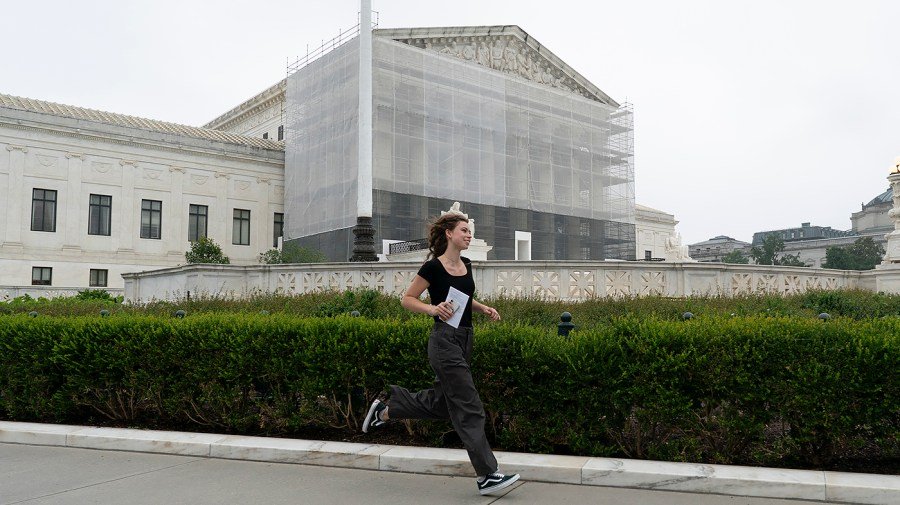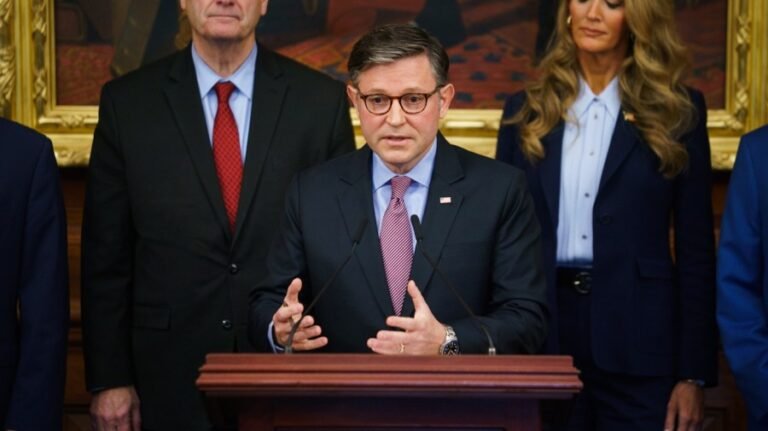
The Supreme Court on Wednesday rejected South Carolina’s request to enforce a ban on transgender students using restrooms that match their gender identity at school.
The emergency order keeps intact a lower court’s ruling letting a transgender teenager, identified in court papers as John Doe, use his school’s boys’ bathroom as his challenge to the state’s policy proceeds.
It emphasized that the denial of South Carolina’s emergency application is “not a ruling on the merits of the legal issues presented in the litigation.”
“Rather, it is based on the standards applicable for obtaining emergency relief from this Court,” the unsigned order read.
Justices Samuel Alito, Clarence Thomas and Neil Gorsuch would have granted the application, the order says.
South Carolina’s bathroom-use restrictions were added to its annual spending bill, requiring the state Department of Education to withhold some funding from districts that run afoul of the policy.
It was put in the spending bill for fiscal 2024 to 2025, which expired in June, and was included again in the bill for fiscal 2025 to 2026, which went into effect July 1.
South Carolina state Sen. Wes Climer (R), who introduced the budget proviso, has defended the measure as “appropriate policy” meant to protect children and “basic common sense.” In July, Climer said he would run for Rep. Ralph Norman’s (R-S.C.) seat in Congress, after Norman launched a bid for governor.
Doe’s lawyers contend that the budget proviso violates Title IX, the federal civil rights law barring sex-based discrimination. He mounted his legal challenge after being suspended for using the boys’ bathroom at school. The U.S. Court of Appeals for the 4th Circuit enjoined the proviso last month as the lawsuit progresses.
“This application for emergency relief concerns one ninth-grader’s restroom use,” Doe’s lawyers argued in their response to the state’s emergency application.
“That is hardly an emergency warranting a stay from this Court, an extraordinary intervention in an ongoing appeal,” they added.
In its emergency application to the justices, South Carolina argued that the bathroom policy is “designed to protect the privacy and safety of all students in a space that has historically been recognized as intimate and vulnerable.”
South Carolina Solicitor General Thomas Hydrick called the case one “fraught with emotions and differing perspectives” but said that’s “all the more reason” to defer to state lawmakers as the appeal moves forward.
Neither the South Carolina attorney general’s office nor Doe’s legal team at Public Justice, a nonprofit legal advocacy group, was immediately reachable for comment.
The Supreme Court turned away a similar appeal from a Virginia school board in 2021, leaving intact another 4th Circuit ruling allowing a transgender student to use the bathroom matching his gender identity. Justices Thomas and Alito, the court’s most conservative members, said at the time they would have heard the school district’s appeal.
Laws barring transgender people from using bathrooms and other facilities consistent with their gender identity in K-12 schools, colleges and universities and government-owned buildings have been adopted by nearly half the nation since 2017.
Since January, President Trump’s administration has sought to enforce restrictions on restroom and locker room usage in schools nationwide, threatening funding for states and school districts that allow transgender students to access facilities that do not match their sex at birth.


